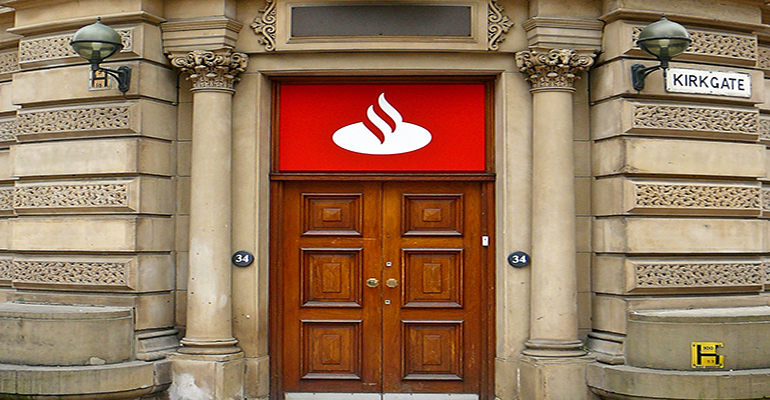On Tuesday Banco Santander announced that it will not exercise the repurchase of its contingent convertible bonds (CoCos) – the AT1 – of 1.5 billion euros and coupon of 6.25%. The bank, which referred to financial reasons, had already warned in its presentation of results that it would only make the call if conditions were adequate.
Analysts at Morgan Stanley – with a recommendation of Overweight at an Objective Price of 7.70 euros – point out that they assumed this scenario in their forecasts. Banco Santander will continue to monitor the market, which will leave the door open to exercising the repurchase at a later date (it could do so quarterly).
For Santander it has a slightly positive impact on profits (temporarily, until it refinances) given that the coupon goes from 6.25% to around 5.9%. But for the industry, this reflects the current financing conditions of the market.
The bank becomes the first bank in Europe which will not redeem an issue of CoCos at the first possible opportunity to do so since the creation of this instrument in 2013.
Within the AT1 CoCo market, banks typically call bonds at the first call option, however this has happened before. For example, Deutsche Bank AG skipped a call option on its Euro Lower Tier 2 in 2008 which rattled markets at the time. Even as recent as 2016, Commerzbank AG and Standard Chartered Plc extended their subordinated debt.
In the opinion of the firm Wisdom Tree, Santander’s decision “is a shock to the market”. Their analysts believe that it is an outlier and not what one should expect from other issuers across the AT1 CoCo market going forward.
For some investors in the AT1 CoCo market, this uncertain period can create a unique buying opportunity as spreads widen and markets can sometimes overreact to news by overpricing risk in the short-term.
While Santander’s euro denominated AT1s fell to 95 cents last month, they bounced back to almost par yesterday as investors began pricing in a higher likelihood that they would be called. As explained by Wisdom Tree:
In the end, funding costs to keep the AT1 CoCos outstanding was cheaper than current funding costs and Santander inferred that maintaining lower costs outweighed the reputational damage with bondholders, even though it could impact future new issuance of subordinated debt.
On the other hand, the ratings agency Standard & Poor’s (S&P Global) considers it “completely rational” that Banco Santander decided that given that it would allow savings of 12 million euros per year. Thus, the agency indicated in a report that, although in recent years European banks had been anxious to execute this repurchase call to replace an expensive debt with another at much lower cost, the current situation is different. In this sense, the refinancing of some of these instruments would have a higher cost than maintaining them, even after the coupon is revised on the first redeeming date.





